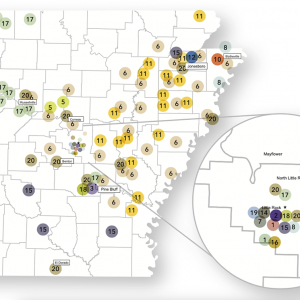Student Tech: Laptops vs Tablets
By Lindsay Irvin on Monday, September 19, 2011
Technology in the classroom is great, but before you beg your parents for an iPad, compare its cool-factor to a laptop’s practicality.
TABLETS
Pros
- They’re new and cool. You can use them for everything: entertainment, homework, music, studying, movies or whatever.
- Apps can make life easier: There’s an ever-expanding universe of free and paid apps that will help with everything from word processing and spreadsheets to note-taking and video editing. But these apps are usually simulations of programs available in full-form on laptops.
- They have a long battery life. An iPad’s battery can power your flashcard study app during finals week for up to 10 hours on a single charge. And if you need more juice, the charger fits easily into your pocket.
- They’re ready when you are. With one push of a button, your tablet is on and ready to do what you need it to, unlike a laptop that needs to be unpacked, opened up, booted up and logged into first.
Cons
- They’re new and cool. Technology is changing at speeds consumers often can’t keep up with. Such is the case with tablets like the iPad. The excitement to own one should be tempered with the reality that in six months to a year, a better, newer or more advanced version will be for sale – it’ll cost a lot to upgrade to the “cooler” one your roommate just bought.
- You will also need a laptop. Imagine trying to type a term paper on a tablet’s touch-screen keyboard. While tablets can be great on-the-go gadgets, you’re going to need something built for more substantial use to get you through Comp I.
- No e-textbook buy-backs. The digital version of your Western Civilization II textbook might be cheaper than the hardback but buyer beware; campus bookstores can’t buy the eBook back when you’re through with it. Be sure to compare all the costs of new, used or digital textbooks carefully.
- The screen is usually smaller. A tablet screen is generally smaller than a laptop’s. For required readings, homework assignments, research and personal time (playing games or surfing the net), you’re going to want a larger screen, a mouse and a real keyboard.
- They’re a tempting distraction. Games, magazines and other forms of tablet entertainment can be accessed stealthily during a tedious lecture. But while you may have the highest score in Words with Friends and Angry Birds by semester’s end, your college test scores won’t be anything to brag about.
LAPTOPS
Pros
- Homework is a breeze. With a physical keyboard and plenty of hookups for accessories like an external mouse, the laptop is a dependable choice for writing papers, studying class PowerPoints and emailing your professors.
- It’s reliable technology. Laptops may not be as exciting as the new-fangled tablets popping up at Best Buys across the country, but just because it’s older technology doesn’t mean it’s irrelevant. Laptops are still the best choice for college students, offering many of the same functions as the increasingly popular Apple iPads, Motorola Xooms and HP Slates.
- They fit great in a dorm room. Especially with smaller breeds like netbooks, you’ll have no problem making room for a laptop, even in the cramped confines of a dorm room.
- They can be cheaper. Prices will vary, but you can get a netbook for less than the cost of a tablet. A more durable, longer-lasting laptop will start closer in price to a tablet.
Cons
- They can be heavy. The average laptop weighs around 6 pounds while the iPad weighs just 1 ½ pounds. Throw the laptop into a backpack with a textbook or two and you’re transporting quite a bit of weight. While netbooks are smaller and lighter, in general even they can’t compete with the svelte profile of a tablet.
- They’re bulky (compared to a tablet, that is). College desk surfaces are usually small and many laptops consume the entire space. It can also block nearby students’ views of the professor or projector screen.
- They’re a distraction. Your classmates might be disturbed by the bright light of your screen while they’re trying to pay attention to the professor. Meanwhile, you may be easily tempted to play Solitaire during a boring lecture. Pen and paper don’t give you that option.
- They have a limited battery life. While the time you’ll be able to work without wires varies a lot, generally a tablet is going to offer you a longer amount of time between charges.















